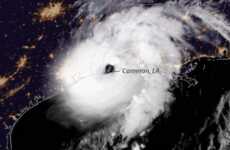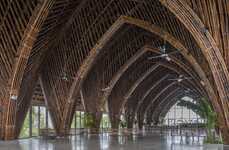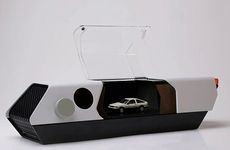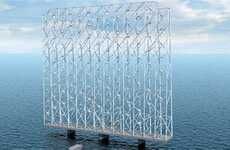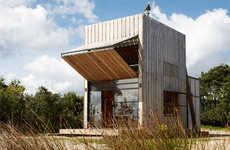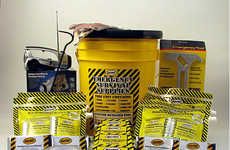
The FIU Wall of Wind Prevents Hurricane Destruction and Damage
References: youtube & presurfer.blogspot
The FIU Wall of Wind accurately simulates hurricane conditions, allowing researchers to create wind-proof structures. The giant wall made up of 12 powerful fans and sprinklers, which simulates rain, is used against models of houses to determine the best way to protect buildings from destruction.
Hurricanes all over the world can be destructive and dangerous, resulting in mass damage along their paths.
With the wind simulator, the FIU engineering team is able to set wind and rain conditions as necessary to test out structures in their own facility rather than having to go out and look for a storm.
The FIU Wall of Wind helps researchers learn how to build resilient structures that will minimize hurricane impact and trauma.
Hurricanes all over the world can be destructive and dangerous, resulting in mass damage along their paths.
With the wind simulator, the FIU engineering team is able to set wind and rain conditions as necessary to test out structures in their own facility rather than having to go out and look for a storm.
The FIU Wall of Wind helps researchers learn how to build resilient structures that will minimize hurricane impact and trauma.
Trend Themes
1. Weather Simulation Technology - The development of advanced weather simulation technology, such as the FIU Wall of Wind, presents an opportunity to innovate hurricane-resilient structures and products.
2. Disaster Prevention - Weather simulation technology can enable more effective disaster prevention and preparedness, providing opportunity for innovation in disaster response and relief industries.
3. Sustainable Building Practices - The use of weather simulation technology can help identify environmentally-friendly building practices that can withstand harsh weather conditions, creating an opportunity to innovate the construction industry.
Industry Implications
1. Engineering - The development and use of weather simulation technology presents an opportunity to innovate resilience engineering and better understand the impact of weather events on infrastructure and buildings.
2. Insurance - The use of weather simulators can enable better risk assessment, leading to more accurate and cost-effective insurance coverage for individuals and businesses.
3. Architecture - The development of weather simulation technology presents an opportunity for architects to innovate hurricane-resistant building designs and integrate sustainability practices into their creations.
0.9
Score
Popularity
Activity
Freshness

